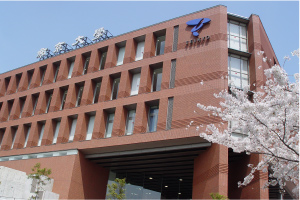Teikyo University is a comprehensive university consisting of 29 departments from 10 faculties, such as medical science, literal arts, science and engineering. It has 48 years of history since its inception. Till now, Teikyo University has successively supplied more than 100,000 excellent graduates for various industries, including enterprises, government organs and educational institutions. We mainly enroll students of science and engineering direction. Let’s learn the up-to-date knowledge.
Our education guideline is to train students to master the “practicability” of theoretical thinking ability through practice, to learn and experience “internationality” of different cultures, and to master necessary and open knowledge and technology to cultivate talents with exploration abilities.

